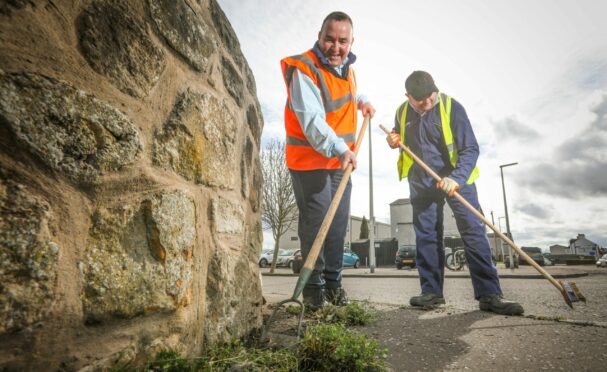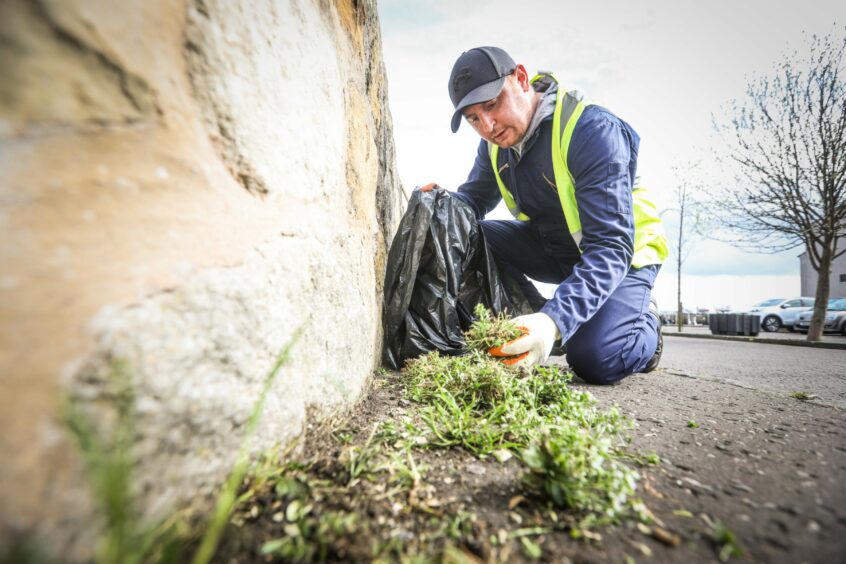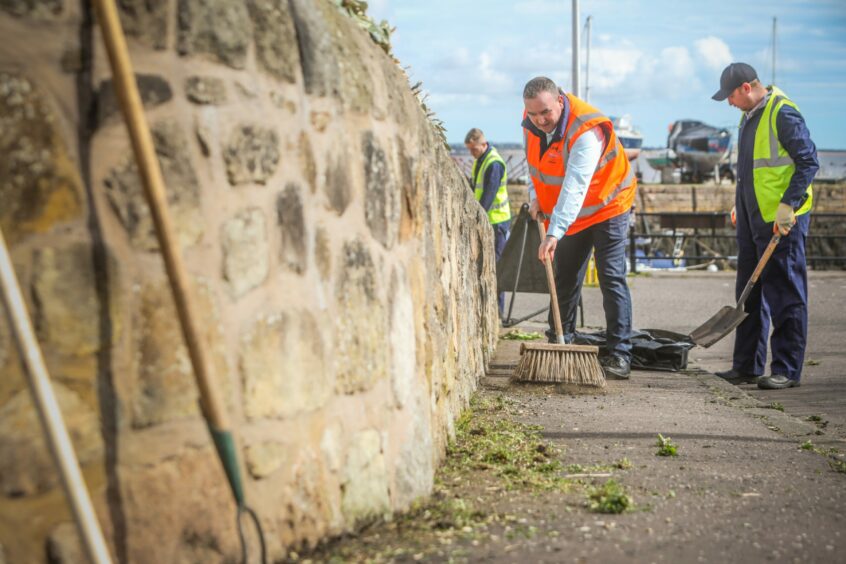Fife Council has ditched weedkiller for a pilot scheme in Tayport.
The local authority has been using mechanical road sweepers to clear weeds from the harbour area.
Meanwhile, a local Community Payback team helped out by clearing the hard to reach areas with traditional gardening tools.
Fife Council aims to find out if its teams can effectively control weeds without spraying them with glyphosate herbicide.
Council service manager Scott Clelland says: “Any reduction we can make in the use of chemical weedkillers will benefit the environment.
“We are piloting this approach, which involves manually clearing the weeds as an alternative to using chemicals.
“We’ll evaluate the impacts and benefits over the next few weeks as the pilot progresses.”
What’s wrong with weedkiller?
Farmers use glyphosate during food production.
And garden centres widely sell weedkillers containing the chemical.
In 2015, the International Agency for Research on Cancer concluded that glyphosate is “probably carcinogenic to humans”.
However, manufacturers have rigorously defended its safety.
Similarly, the Health and Safety Executive says it has been “approved as safe and efficacious”.
Meanwhile, in Tayport, residents support the pilot scheme.
George Beat is secretary of Tayport Community Council.
He says local residents are concerned about the impacts of weedkillers on human health.
“There’s been a lot of talk about the use of weedkillers.
“There is concern for people’s health and the environment.”
Local Lib Dem candidate Jonny Tepp has been “pressing for some time” for the council to consider alternatives to weedkiller.
“There has been concern about the use of herbicides to control weeds for some time.
“I am therefore pleased that this pilot project has been set up in Tayport to see whether it is possible to keep weed growth under control without having to use herbicides.”
Weeding is ‘labour intensive’
After the initial clearing effort, the teams will be back out three or four times over the summer months to keep the streets weed free.
Whether or not the trial is successful will depend on how quickly the weeds grow back.
Council bosses will have to make a decision about the labour and resources involved in going weedkiller free.
Craig Hutton, who leads the local Community Payback team, describes the task as hard work.
“It is labour intensive.” He adds: “I think it’s quite a positive thing.
“It’s a good thing, certainly from our point of view, for unpaid work, for guys doing work in the community.”












